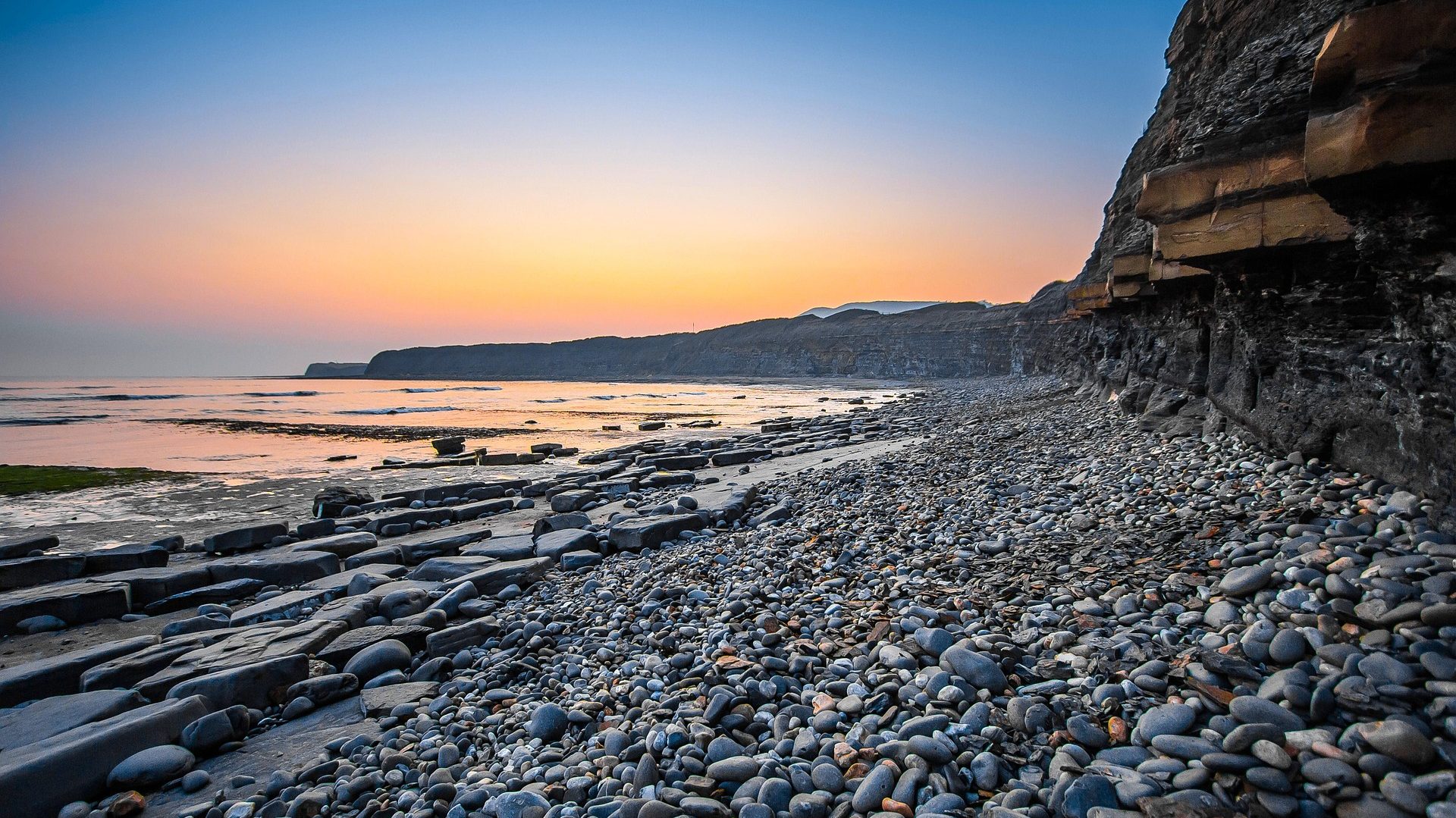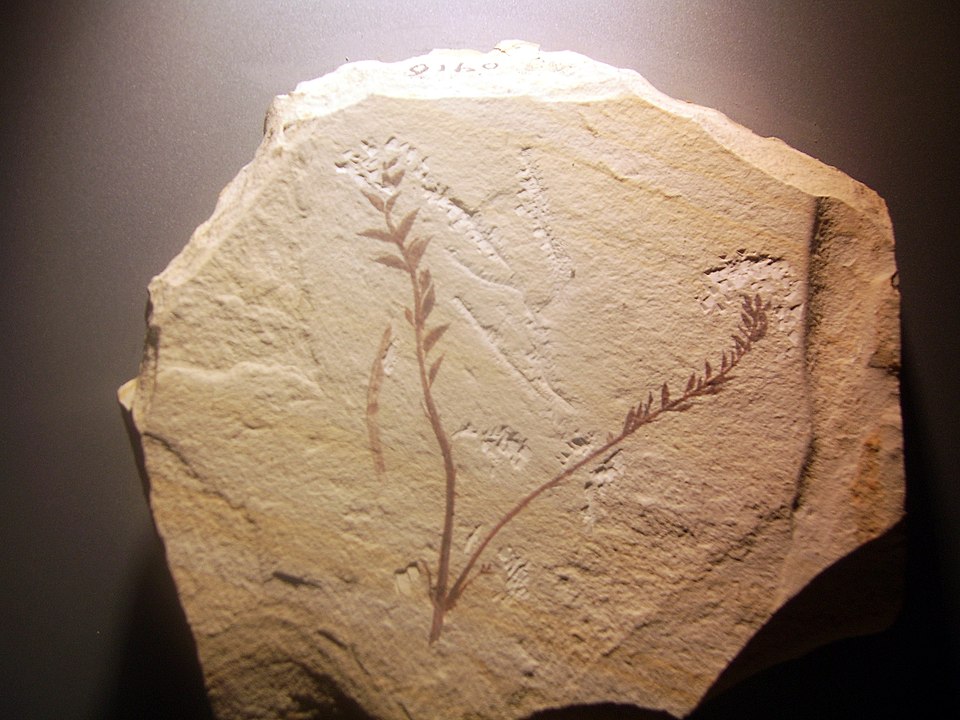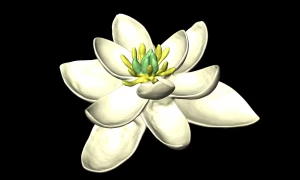
The First Flower is more than just a beautifully illustrated story – it is a journey into the ancient past, blending imagination with real science.
Inspired by the author’s background in biological sciences, the fossils found along the English “Jurassic Coast” World Heritage Site, and a deep fascination with natural history, this book brings to life the emergence of Earth’s first flower.
Evolutionary Inspiration

The oldest flower fossils we know about are around 130 million years old. Montsechia vidalii and Archaefructus are both aquatic plants that were once thought to be the oldest flowering plants.
But some scientists think flowers may have started growing even earlier in the mesozoic era, between 140 million and 250 million years ago. The First Flower explores this exciting idea, helping young readers imagine what the first flower might have been like.
By combining artistic storytelling with scientific findings, The First Flower explores this intriguing possibility, offering young readers a window into the world of early plant evolution.
Scientific Research & Discoveries

Scientists have studied fossils and plant DNA to figure out what the very first flower might have looked like. Some believe it had soft, petal-like parts and may have looked a little like a modern magnolia. This research challenges previous assumptions and highlights the complexity of flowering plants’ ancient origins.
Scientists use different kinds of research to learn about the past and new discoveries are often a result of multiple specialist areas such as evolutionary biology, botany, paleontology (fossils), and natural history.
As scientists continue to uncover more about angiosperms (flowering plants), new discoveries bring us closer to understanding the incredible journey of how flowers appeared and changed over millions of years.
Stay curious, and keep exploring the wonders of the natural world!
Learn More
For readers interested in the real-world science behind The First Flower, explore the following resources:
Scientific Journals & Articles:
- Sauquet, H. et al. The ancestral flower of angiosperms and its early diversification. Nature Communications 8, 16047 (2017). https://doi.org/10.1038/ncomms16047
- Silvestro, et al. Fossil data support a pre-Cretaceous origin of flowering plants. Nat Ecol Evol 5, 449–457 (2021). https://doi.org/10.1038/s41559-020-01387-8
Magazine Features & Online Resources:
- Wikipedia: Archaefructus – https://en.wikipedia.org/wiki/Archaefructus
- Wikipedia: Montsechia vidalii – https://en.wikipedia.org/wiki/Montsechia
- The Guardian – “Mother of all blooms: is this what the last common ancestor of flowers looked like?” https://bit.ly/42AVv6a
- Smithsonian Magazine – “What Did the Ancestor of All Flowers Look Like?” https://bit.ly/40JjQEi
- The Conversation – “Flowers may be more ancient than dinosaurs – but scientists can’t agree on when they evolved” https://bit.ly/3PYzhmV
Cover image by Roman Grac
